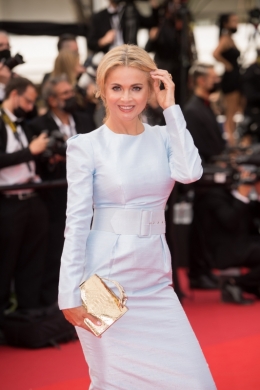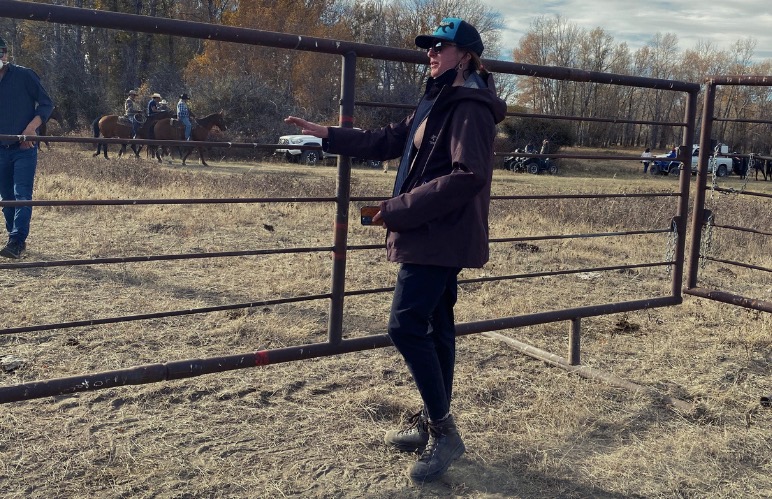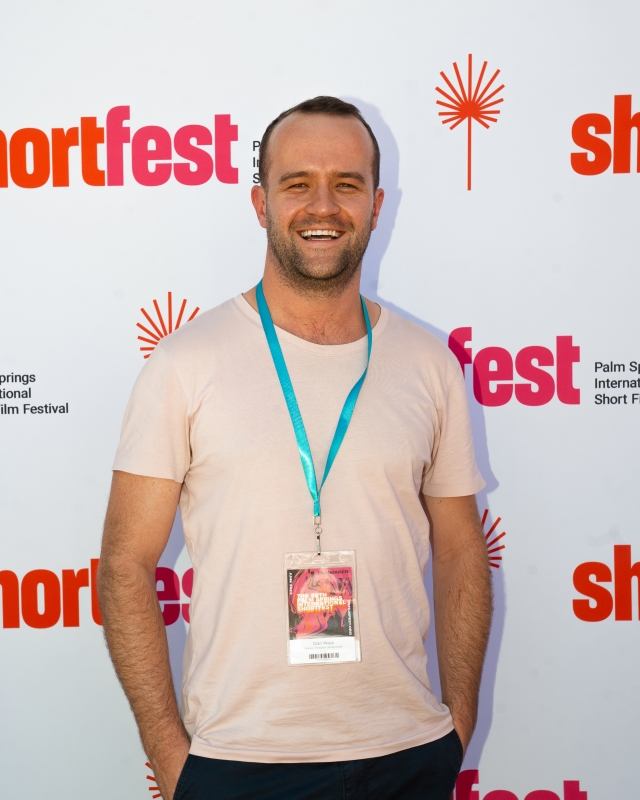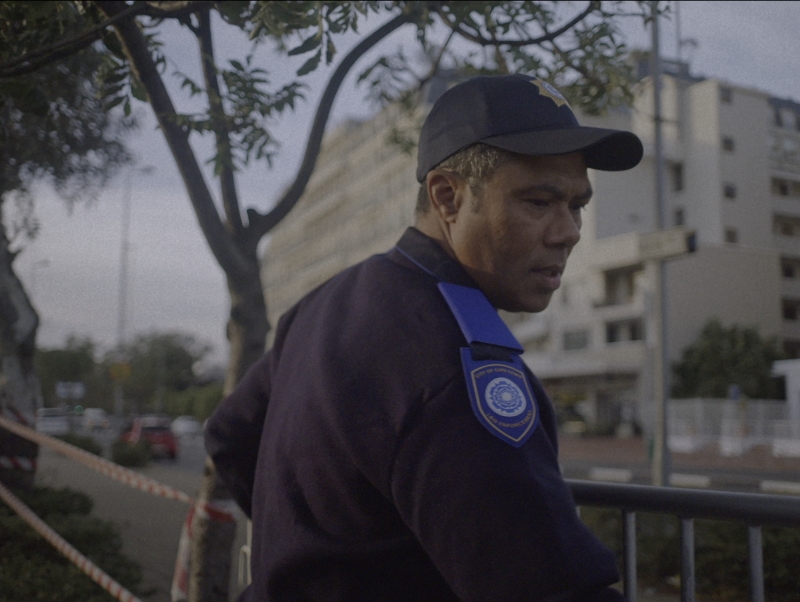|
|
||
|
Pro Tools
FILMFESTIVALS | 24/7 world wide coverageWelcome ! Enjoy the best of both worlds: Film & Festival News, exploring the best of the film festivals community. Launched in 1995, relentlessly connecting films to festivals, documenting and promoting festivals worldwide. Working on an upgrade soon. For collaboration, editorial contributions, or publicity, please send us an email here. User login |
Interview with Writer/Director Eva Lanska at 74th Cannes Film Festival
London-based director and screenwriter Eva Lanska has directed multiple award-winning films which focus on subjects of individual adversity in situations of societal issues at large. A selection of the Washington Jewish Film Festival, Lanska’s film “Little French Fish” (2020) faces the issue of an interracial marriage of an Orthodox Jewish woman and a Muslim man. Her previous picture “Okay, Mum” (2018) about domestic violence in the home won Best Picture at the Los Angeles Film Festival and was selected for the Short Film Corner at the 2017 Cannes Film Festival. Her upcoming works include “I Am Not An Actress”, inspired by legendary actress Brigitte Bardot, and a documentary entitled “The Abraham Accords Change History: Women in the Middle East". In an interview with Eva Lanska about her career following the 74th Cannes Film Festival, here is what she had to say:
EVA: Since I was a child, I’ve only felt connected to cinema and nothing else. I built a musical career, wrote five novels, and worked as an actress. However, years had passed before I felt the strength and energy enough to take up directing. This is a profession that bears a special responsibility. An artist is a person for whom creativity is the only possible form of existence. There is an opinion that a director is not a profession but a vocation. But it should be noted that my studies at the London Film Academy were very useful. The ability to work as one cohesive team is an important skill for directors, and this is what they teach at the Academy.
EVA: This is a story of a creative, gifted, and fragile girl, Natasha, who is surviving every day in her own family. The parents are in a state of constant conflict - the father passes his anger onto his child, and the mother doesn't do anything about it. The girl cries in vain for help to her mother. The subtlety of perception and a child's rich imagination increases the pain of her soul, drawing upon the terrible images making it unbearable to stay at home. Unfortunately, this is the story of many thousands of children who are subjected to domestic violence by their parents, and to me, it was important to talk about this topic in my art.
EVA: “Little French Fish” is an eternal story about the love between people from two different worlds. The story of Romeo and Juliet is one of the integral parts of human culture. In this case, it is a story about two lovers, a Jewish woman and a Muslim man. It is about a fight between the feelings and passions against traditions and social order. The question is, how does a person who finds his or herself in such a situation solve this internal conflict? I lived in Israel, and I have heard different endings of such relationships. This case can be related to any couple with different social, material, or religious backgrounds. There are two polar choices that tip the scales. One is to stay integral with traditions, which are severe and cannot be ignored, otherwise, this set of life rules would not have been a tradition for hundreds of years. However, an individual soul falls in love with another person, and feelings require balance, no matter what. Therefore, the second extreme is the escape from established stereotypes with your loved one. But where to run in the modern world? In this film, I tried to pose this question to the viewer. So, precisely the viewer had to make a choice for the heroes and become responsible for their fate.
You are now working on your first feature film, “Bardot”, inspired by the renowned French actress. Can you tell us about this project? You are also an actress. Is Brigitte Bardot an inspiration for you? EVA: At the beginning of my career when I lived in Paris and worked as a singer, one of the music producers offered me to record an album of cover versions of Serge Gainsbourg's songs, and among them there was a song written for Brigitte Bardot. I always try to learn the background and history of the creation of masterpieces, as it is interesting to know what feelings and events led the artist to his creation. So, I started to immerse myself into the story of the gorgeous woman Brigitte Bardot, a woman who rocked the film industry and all accepted standards. All the efforts and sacrifices she made in those years, today, have turned out to be especially relevant. Over the years, Brigitte Bardot’s indomitable charisma has inspired various artists, and thus, she has also been the main muse for my new film.
EVS: There are two names that first come to mind - Andrei Tarkovsky and Michelangelo Antonioni. In their work, these two great artists have so many differences and at the same time lightness and depth.
EVA: This experience made me understand what an actor really feels on the set, and how fragile and sensitive real talent is. You attended the 2021 Cannes Film Festival. Can you tell us about your experience there this year and was it successful? As a director, is it important to attend Cannes? EVA: Of course, the Festival de Cannes is a wonderful platform for exchanging experiences with colleagues, but it is also a platform for conveying an important message. Unfortunately, the proportion of female directors in the film industry is still incomparably small, no more than 17 percent according to statistics. This is what needs to be said for the long-awaited changes to take place. It’s a very serious problem. And the amount of women film directors who receive big budgets for the projects is close to none. As women, we need to put our power together. We can’t keep competing with one other, as that’s not going to help. We’re also going to need outside support, maybe even from the government, to support women’s projects. We already trust men and we need to give women that same trust.
EVA: Tarkovsky said, “I never wanted to adore myself. (I would have been ashamed to be in the role of an idol.) I have always dreamed of being needed.” I like this phrase by Tarkovsky about the director's future. "To be needed” - in these words is hidden a lot about the life of an artist.
Interview by Vanessa McMahon. 74th Cannes Film Festival.
08.08.2021 | Vanessa McMahon's blog Cat. : Interview with Writer/Director Eva Lanska at 74th Cannes Film Festival Interviews PEOPLE
|
LinksThe Bulletin Board > The Bulletin Board Blog Following News Interview with EFM (Berlin) Director
Interview with IFTA Chairman (AFM)
Interview with Cannes Marche du Film Director
Filmfestivals.com dailies live coverage from > Live from India
Useful links for the indies: > Big files transfer
+ SUBSCRIBE to the weekly Newsletter Deals+ Special offers and discounts from filmfestivals.com Selected fun offers
> Bonus Casino
User imagesAbout Vanessa McMahonThe EditorUser contributions |


























 McMahon Vanessa
McMahon Vanessa 


